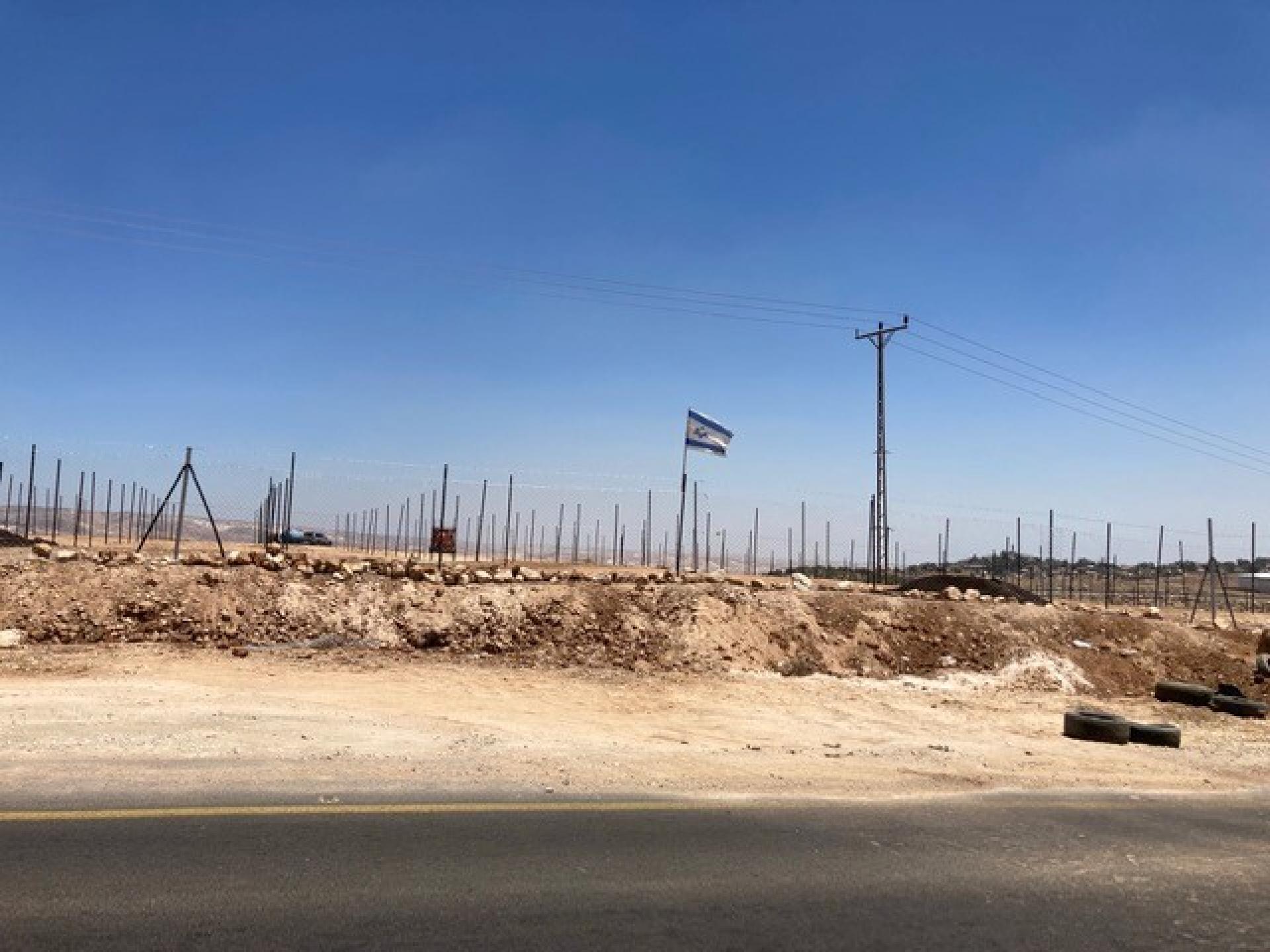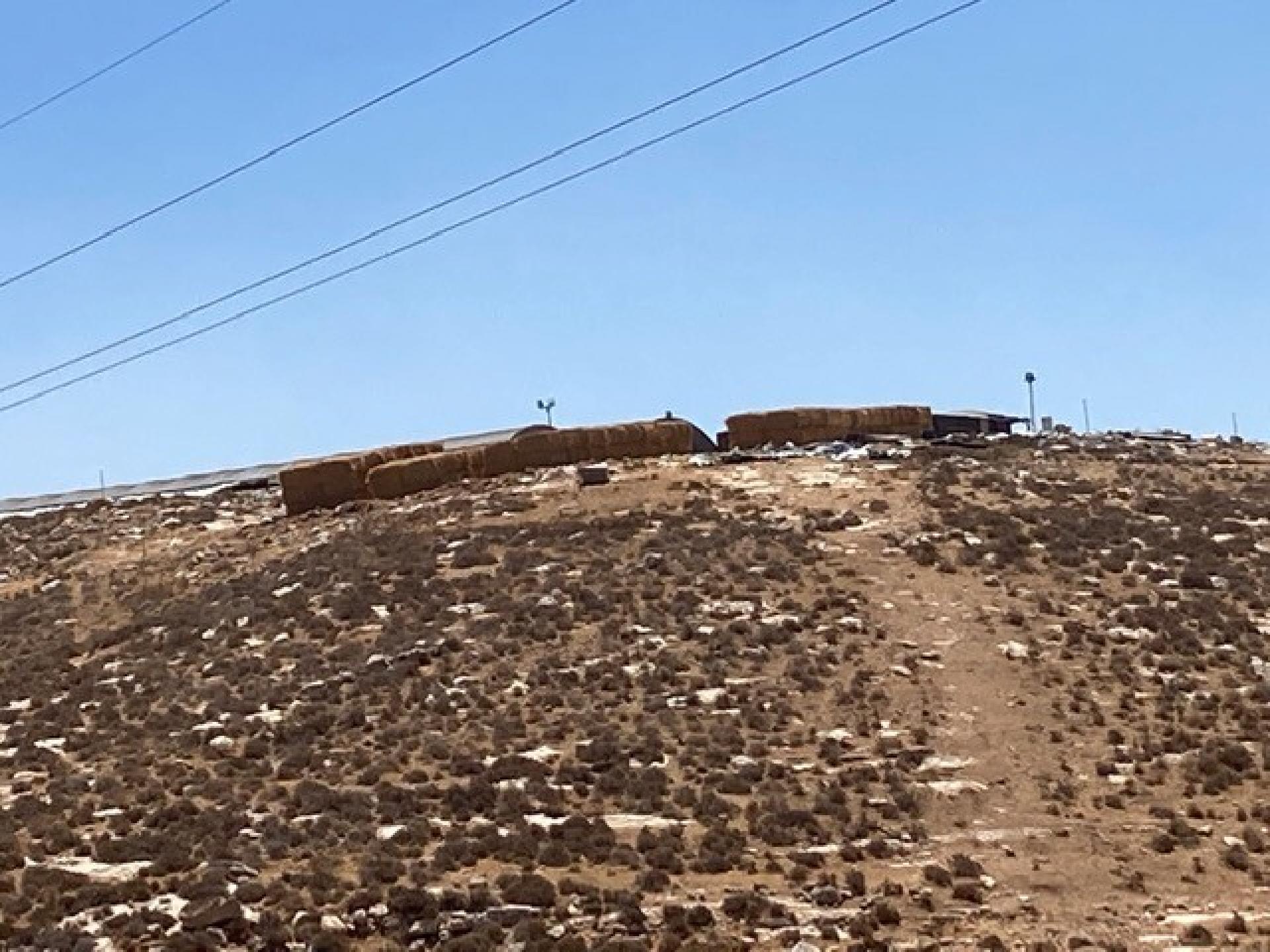The Carmel and Maon settlements: this is what ignoring a court decision looks like
Shia is a guest from India who is studying at Tel Aviv University on an exchange program from the university in Prague.
She is writing a thesis about Machsom Watch from the perspective of the United Nations 1325 about involving women in security decisions. It is interesting to learn what young women from other countries think about us. She joined me during this shift, in which nothing new occurred.
We brought clothing for the Abu Safi family. Smadar B. is responsible for collecting the clothing near Route 317. The family is being threatened by a farm belonging to settlers that were established on the edge of the settlement of Asael. The flocks from the illegal farm belonging to a settler named Yisrael has invaded the Abu Safi family’s grazing land again and again
Abu Safi asked what he could do. I thought about using a drone with a camera to follow the movements of the settler’s flock along with a group of volunteers who would prevent the settler from entering his land. This would require money, and Abu Safi explained that the Palestinian Authority has not helped and will not protect them. They live in the periphery. He suggests that everyone remain in their own homes. He is right.
to follow the movements of the settler’s flock along with a group of volunteers who would prevent the settler from entering his land. This would require money, and Abu Safi explained that the Palestinian Authority has not helped and will not protect them. They live in the periphery. He suggests that everyone remain in their own homes. He is right.
The settlers are expanding the cowshed at the settlements of Carmel and Maaon on Route 317 in whatever way they wish, despite the fact that the Palestinians have documentation attesting to their ownership of the land. and This is the settler’s constant ignorance of the decision of the Israeli Supreme Court. So what if the court ordered the work to be stopped? The “masters of the land” don’t take that into consideration.
The human story concerns a young man from Samua who has a permit to work in Israel but did not go to work today for the following reasons:
He must pay the Israeli employer who wants you NIS 2700.
He must pay the Palestinian negotiator NIS 1000.
He must pay travel expenses.
There are only 22 workdays each month.
The salary does not cover the expenses.
It is not feasible to go to work under these circumstances.
I referred him to Mussi Raz, M.K. Perhaps if there is another organization that provides work permits people will not have to pay Israeli employers or Palestinian negotiators.
Shia concluded that the bottom line is that the occupation rests upon a war between people of different social statuses, ו
It was beginning to be very hot and there are no mulberries this year.


